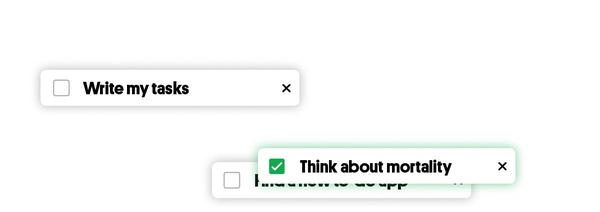
And then what do we do? You’ve probably done it: We panic, give up, and quit. We “declare to-do bankruptcy.” We toss the list away in defeat and start fresh.
You can blame Zeigarnik again. The mere act of making a to-do list relieves so much itchy stress that it can, paradoxically, reduce the pressure to actually get stuff done. “People feel that when they put all their tasks somewhere, they’ve already done most of the work,” Perchik says. But it’s an illusion. The pile of work is still there.
More than a pile! If you feel adrift on a turbulent sea of unmanageable tasks, that might be because there is objectively more expected of us. By one estimate, work hours for those with college degrees went up about 7 percent between 1980 and 2016. Got a graduate degree? For you it went up more than 9 percent. And quite apart from one’s paid toil, there’s been an increase in social work—all the messaging and posts and social media garden-tending that the philosopher and technologist Ian Bogost calls “
hyperemployment
.”
(We could snap the lens open even wider and have a fuller reckoning with capitalism. Focusing on our individual ability to tread water—with apps and lists—can look like a bleak exercise in blaming the victim, when in reality the only solution is not better apps but non-hideous workloads, debt relief, and a saner landscape of civic care. Frankly, if you took “managing grotesquely useless and bloodsucking for-profit health insurance” off people’s to-do lists, it would remove one remarkably stressful item, as my Canadian upbringing compels me to suggest. But I’m writing this particular article from within the belly of the whale, as it were.)

No matter whose fault it is, we take this stuff personally. American to-do behavior has a deeply puritan streak. Benjamin Franklin was among the first to pioneer to-do lists, creating a
checklist
of “virtues”—temperance! frugality! moderation!—that he intended to practice every day. That’s what the information scientist Gilly Leshed and computer scientist and cultural theorist Phoebe Sengers, both at Cornell University,
found
when they talked to people about their to-do lists. “They abide by the norm of ‘We need to be productive citizens of this world,’” Leshed tells me. Doing more is doing good.
To-do lists are, in the American imagination, a curiously moral type of software. Nobody opens Google Docs or PowerPoint thinking “This will make me a better person.” But with to-do apps, that ambition is front and center. “Everyone thinks that, with this system, I’m going to be like the best parent, the best child, the best worker, the most organized, punctual friend,” says Monique Mongeon, a product manager at the book-sales-tracking firm BookNet and a self-admitted serial organizational-app devotee. “When you start using something to organize your life, it’s because you’re hoping to improve it in some way. You’re trying to solve something.”
